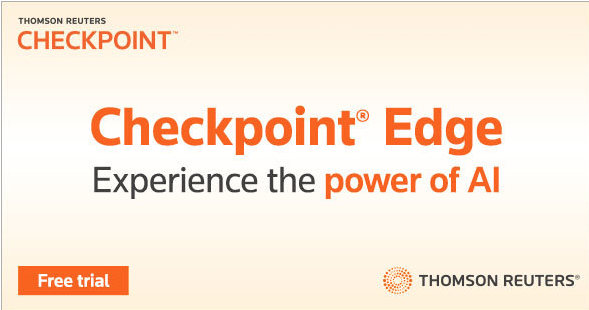Today’s tax and accounting professionals face a wide variety of challenges. From a shrinking labor pool to ever-changing tax regulations to increased client demands, many accounting firms are dealing with high turnover and burnout amongst their staff members.
Jump to:
Today’s tax and accounting professionals face a wide variety of challenges. From a shrinking labor pool to ever-changing tax regulations to increased client demands, many accounting firms are dealing with high turnover and burnout amongst their staff members.
However, amidst these challenges lies an opportunity for transformation. The dawn of AI has the potential to revolutionize the tax and accounting profession by enhancing efficiency, accuracy, and insights.
Let’s explore how AI can help address accountant staffing challenges in four key areas: research, accounting, data analytics, and training.
One of the most significant challenges for tax and accounting professionals is staying abreast of the latest tax regulations and compliance requirements. AI-powered research tools like Checkpoint Edge offer a solution by providing fast access to the most relevant and up-to-date information alongside related news, content, and expert commentary.
So how does it work? Checkpoint Edge streamlines the research process through features such as AI-powered search, dialogue-based research, suggested markers, and automatic updates. These tools empower accountants to efficiently navigate complex tax codes and regulations, saving time and ensuring accuracy.
The algorithms built into Checkpoint Edge have incorporated millions of user data points, including usage patterns and prior questions, which point users to trusted answers faster. Most importantly, the difference you’ll notice between Checkpoint Edge and a typical Google search of a tax or accounting question is the quality of the results.
Backed by the knowledge and integrity of all Thomson Reuters products, a Checkpoint Edge search will give you only trusted, vetted, and reliable results from expert sources. A trusted tax research source like Checkpoint Edge can help ease accountants’ workload if firms are short-staffed.
Perhaps now more than ever, managing tasks and workflows efficiently is crucial for accounting firms.
Cloud-based accounting software and automation tools offer numerous benefits such as online invoicing, bank reconciliation, expense tracking, and payroll management. These tools leverage AI to automate repetitive tasks, allowing tax and accounting professionals at all levels to focus their time on value-added activities, like data analysis and tax strategy, that wow clients and boost profitability.
With the Advisory Maps feature in Checkpoint Edge, you can confidently evaluate and determine the best options for your clients with an end-to-end process for delivering specific tax planning and advisory engagements. Named Winner of the 2024 Accounting Today Top New Products, Advisory Maps provides step-by-step guidance and implementation aids for every task and phase of the process.
With features like these, cloud-based accounting software and automation tools can streamline your firm’s operations, improve accuracy, and help you deliver better client service – even amidst unprecedented staffing challenges.
In an era driven by data, the ability to analyze and interpret accounting data is essential for informed decision-making and improved client service.
Data analytics and visualization tools, such as Tableau, enable tax and accounting professionals to gain valuable insights from vast datasets. These AI-powered tools offer features like data integration, interactive dashboards, and data storytelling, allowing you to uncover trends, identify opportunities, and mitigate risks effectively.
So how does it work? Tableau seamlessly integrates data from various sources, including spreadsheets, databases, and cloud services. This enables accountants to consolidate datasets, including financial transactions, sales figures, and operational metrics, into a single platform for analysis.
With interactive dashboards that provide a comprehensive overview of key performance indicators (KPIs) and metrics relevant to accounting functions, accountants can visualize specific trends, anomalies, or patterns in the data for faster and more informed decision-making.
In addition, advanced analytics like predictive modeling and forecasting can help anticipate future trends and outcomes based on historical data. This enables your firm to identify potential risks, opportunities, and market trends for your clients – an invaluable service in today’s competitive landscape.
At the end of the day, AI-driven analytics can enhance your firm’s advisory services offering by providing clients with actionable insights that drive business growth. This is a strategic advantage that is sure to set your firm apart and ensure lasting client relationships.
4. How continuous training and professional development programs are essential
As technology continues to reshape the tax and accounting landscape, continuous training and professional development programs are essential for accountants to stay compliant and competitive.
Platforms like Checkpoint Learning offer a wide range of online courses, webinars, podcasts, and certifications to help tax and accounting professionals acquire and update their skills effectively.
By investing in continuous training and upskilling, firms can ensure that their workforce is equipped with the knowledge and expertise needed to leverage AI and other emerging technologies successfully. Plus, it shows your staff that you are investing in their professional future, which goes a long way in terms of employee engagement and job satisfaction.
Unlocking the potential of AI to address concerns about staffing accountants
While skill gaps, turnover, and rising client expectations are very real challenges, AI presents an opportunity to transform workflow processes and boost profitability for today’s tax and accounting firms.
By leveraging AI-powered research tools, cloud-based accounting software, data analytics, and continuous training programs, your firm can enhance efficiency, accuracy, and insights while empowering your staff to adapt to the changing landscape.
No matter the staffing challenge or opportunity, embracing AI is fast becoming a necessity to remain competitive and deliver value to clients. If you’re ready to unlock the potential of AI for your accounting firm, visit:
Product Page
|
